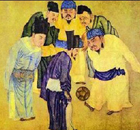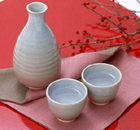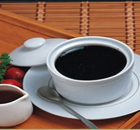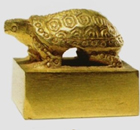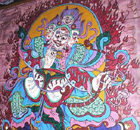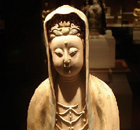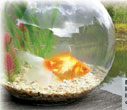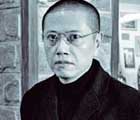Delicacies
In the mood for Modo
By Alexandra Leyton Espinoza (China Daily)
Updated: 2010-11-01 09:51
 |
Large Medium Small |
 |
|
Venezuelan chef Daniel Urdaneta sits before a Western meal served up in an Eastern fashion. [Photos/Zou Hong / China Daily] |
It might be from the same people as Mosto, but new Sanlitun restaurant Modo is an entirely different beast. Alexandra Leyton Espinoza discovers the massive appeal of customer choice.
Modo is all about choice. With a selection of food and wine that only just fits onto the menu, diners are able to construct an experience that infuses their favorite tastes, according to chef Daniel Urdaneta.
The concept is called "small plates", a style of dining in which a group of customers can share several appetizer-sized dishes rather than ordering individual entrees. Essentially, this is Western food served up in an Eastern fashion.
"This is not a new innovation in the Chinese kitchen, since Chinese people are used to sharing dishes," said Urdaneta. "But sharing international small plates is a breaking concept in Beijing."
Many would compare the dishes with Spanish tapas, but Urdaneta says that's not a fare comparison.
"Tapas portions are smaller and are Spanish dishes," he said. "This restaurant is different; the portions are bigger and it is international cuisine."
And Urdaneta should know. The Venezuelan chef started his career in his home country before moving to the US and then on to Spain. He finally landed a job as a chef in Beijing four years ago and went on to set up his own restaurant in 2008 called Mosto in Nali Patio, Sanlitun, with business partner Alex Molino from Colombia.
"After two years of working as a chef, I could see a lot of potential in the restaurant business," Urdaneta said.
"That's what China is like today. We worked really hard but this country gave us an opportunity and we are really grateful for that."
Modo, located at The Village, not only has a different approach to food from its older brother, but even the ambience has a completely new feel.
Empty bottles line one wall and the eating space emits a clean and simple dcor. Rather than creating a clinical feeling, this minimalist approach feels funky and practical. A long table on the second floor is an excellent place for parties and diners even have access to a self-service wine machine - the first such card-operated device in Beijing.
The machine corresponds to the notion that Modo is tackling all forms of restaurant pressure.
"It is about determining what is best for you," said Urdaneta. "Just relax and lay back. If you want our expertise, we are here for you."
But style and direction always come second place to the food, an area Modo does relatively well on.
The restaurant offers an excellent lunch set menu, but diners might be overwhelmed with choice for the evening service. More than 20 dishes are on the menu - catering to vegetarians, meat-eaters and those with a sweet tooth - so here are three favorites.

The best-sounding dish is smorgasbrod (55 yuan), but unfortunately the food does little justice to the name. An uninspired dish, everything about it is too dry.
However, the dill crusted cod fish with wild rice and mushroom pilaff, confit fennel and lemongrass veloute (95 yuan), was an astonishingly fine creation. The rice softened the mysterious flavors perfectly and the result was hearty and nouvelle.
For desert was the white chocolate mousse with blackcurrant sorbet and tuile (55 yuan), which was simply out of this world. The match of earthy cocoa with the tang of fruit worked very well indeed.
Urdaneta said he changes the menu with the season, so food lovers should keep their eyes open for more courses in winter.
 |
|
Top: Dill crusted cod fish with wild rice and mushroom pilaff, served with confit fennel and lemongrass veloute (95 yuan). Middle: White chocolate mousse with blackcurrant sorbet and tuile (55 yuan). Bottom: A self-service wine machine. |
